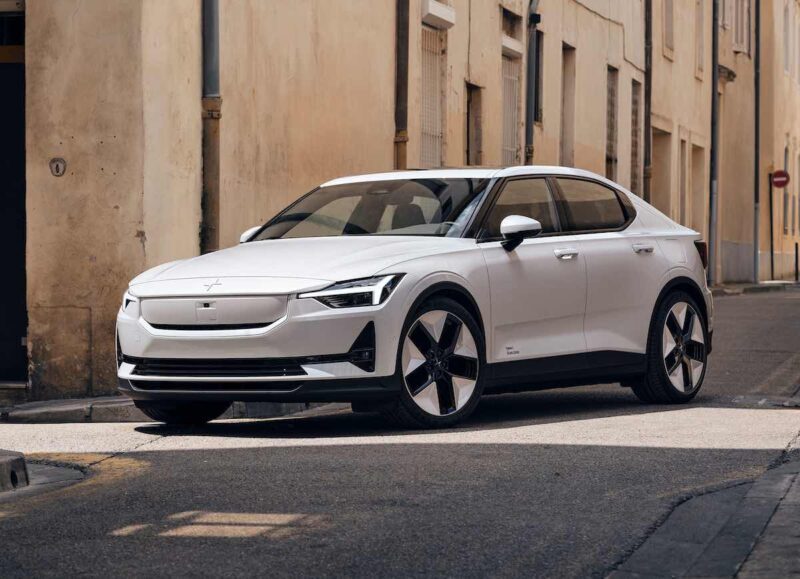Sweden-based electric vehicle manufacturer Polestar says it has cut greenhouse gas emissions by nine per cent per car sold in 2023, thanks to more renewable power, more efficient batteries and EVs, and cleaner materials.
The reduction translates to an average of 3.4 tonnes of Co2-equivalent emissions, and will help the company’s aim to halve its greenhouse gas emissions by 2030 and reaching climate neutrality by 2040.
Polestar says the reduction was made possible by focusing on three specific areas of the company’s production – using materials with a lower climate impact, renewable electricity powering car and battery production, and increasing the energy efficiency of its cars.
For example, updates made to the 2024 Polestar 2 have enabled the car to achieve up to 20% longer travel distances, consume 9% less energy, and offer up to 34% faster charge times – improvements which were largely the result of hardware upgrades such as the incorporation of larger batteries and the introduction of new motors.
Polestar is hoping to further enhance the efficiency of its battery chemistry, and in late-2023 entered into a collaboration with StoreDot to incorporate their extreme fast charging technology into future Polestar vehicles – technology which could lead to what is known as “100-in-5”, or 100 miles (160 kilometres) of range to be charged in just five minutes.
Overall, Polestar says it is witnessing the decoupling of its economic growth from greenhouse gas emissions, a key indicator in assessing Polestar’s overall carbon intensity.
Polestar has also increased its level of transparency and traceability, expanding the number of battery risk minerals tracked. Polestar is now able to trace lithium and nickel used in the Polestar 3 battery, in addition to the ability to track cobalt and mica that have been monitored with blockchain technology since 2020 and 2021, respectively.
“Our vision is clear – we want to accelerate the EV-transition while bringing in more sustainable and innovative solutions to make electric cars even better,” said Fredrika Klarén, Polestar’s head of sustainability.
“We need to acknowledge that our industry still has a huge potential for improvement when it comes to disclosing concrete plans for achieving its climate pledges. This year we are sharing the work we do to make our climate roadmap more concrete, as we navigate towards our 2040 climate goal.”
Joshua S. Hill is a Melbourne-based journalist who has been writing about climate change, clean technology, and electric vehicles for over 15 years. He has been reporting on electric vehicles and clean technologies for Renew Economy and The Driven since 2012. His preferred mode of transport is his feet.

